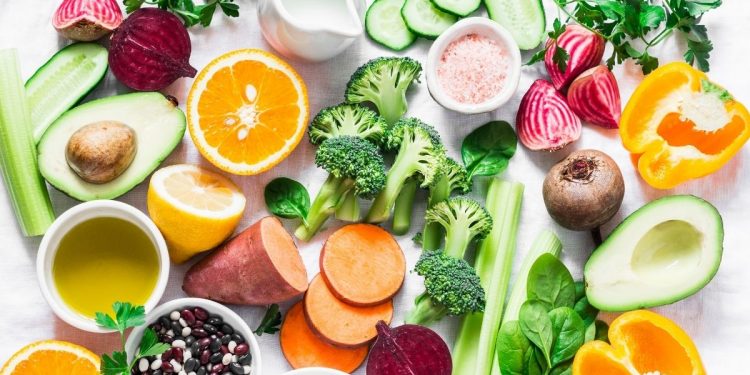Vitamin C (ascorbic acid) is a nutrient which forms various structures in the body such as collagen, blood vessels, and cartilages. Vitamin C is also vital to your body’s recovery process. It also functions as an active antioxidant in the body. It helps cover your cells against the effects of molecules produced whilst exposure to tobacco fumes and radiation from the sun, X-rays, or other sources. These molecules might play a role in heart disorders, cancer, and other conditions. Ascorbic acid likewise helps your body soak and keep iron. Because your body does not produce vitamin C, you demand to get it from your diet.
Sources
Citrus fruits and berries such as oranges and strawberries have vitamin C. Ascorbic acid is also present in vegetables such as potatoes, tomatoes, peppers, cabbage, Brussels sprouts, broccoli, and spinach. Vitamin C is also obtainable as an oral supplement in the form of chewable tablets. Maximum people get enough vitamin C from a healthy diet. Vitamin C shortage is more likely in people who :
- Smoke or exposed to derivative smoking
- Have given gastrointestinal conditions or certain types of cancer
- Have a bounded diet that does not regularly include fruits and vegetables.
Symptoms
- Rough, Bumpy Skin Vitamin C plays a crucial part in collagen output. It is a protein that is plentiful in connective tissues like skin, hair, joints, bones, and blood vessels. Low levels of ascorbic acid cause a skin condition known as keratosis pilaris. In this condition, bumpy pores form on various parts of the body.
- Corkscrew-Shaped Body Hair: Vitamin C insufficiency can also bring about hair to grow in crooked or curved shapes. This is due to flaws that develop in the protein structure of hair as it grows. Corkscrew-shaped hair is one of the hallmark signs of vitamin C insufficiency but may not be conspicuous, as these crippled hairs are more probable to break off or fall out. Hair anomalies continually resolve within one month of treatment with acceptable quantities of ascorbic acid.
- Bright Red Hair Follicles: Hair follicles on the face of the skin contain numerous tiny blood vessels. These hair follicles supply blood and nutrients to the area. The deficiency of ascorbic acid, causes small blood vessels to get fragile and break readily. This causes small, bright red spots to appear around the hair follicles. This is understood as perifollicular hemorrhage and a well-established sign of severe vitamin C insufficiency.
- Spoon-Shaped Fingernails With Red Spots or Lines: Spoon-shaped nails are characterized by their depressed shape and are frequently thin and brittle. They’re more generally associated with iron insufficiency anemia but have also been linked to vitamin C insufficiency.
- Association of dry, damaged skin High inputs of ascorbic acid is with better skin quality, while lower inputs are associated with a 10% increased threat of developing dry, wrinkled skin. While dry, damaged skin can be associated with vitamin C insufficiency, it can also be caused by numerous other factors, so this symptom alone is not enough to diagnose an insufficiency.
- Bleeding Gums and Tooth Loss Red, puffed, bleeding gums are another common sign of vitamin C insufficiency. Without decent vitamin C, the gum tissue becomes weakened and inflamed and blood vessels bleed more readily. In advanced stages of ascorbic acid insufficiency, gums may indeed appear purple and rotten.
Scurvy
Scurvy is a rare condition. Its cause is the severe insufficiency of vitamin C in the body. It leads to ulceration and bleeding of the gums. People with a rich cereal and bread diet do not get scurvy. Even so, it can prove fatal if left untreated. Common symptoms of scurvy, if left untreated include :
- Anemia
- Cuticle hemorrhages: It includes bleeding under the skin and Large areas of reddish-blue to black bruising, frequently on the legs and feet
- Bruise-like raised bumps at hair follicles, frequently on the calves
- Tooth decay: It includes Gingivitis or red, soft, and tender gums that bleed readily
- Reduced injury recovery and immune health with Chest pain and Shortness of breath.
- Light acuteness and Blurred vision
- Mood swings, frequently irritableness, depression, and headache
- Gastrointestinal bleeding
Recommended intake
The adequate daily consumption of vitamin C is 90 mg for men and 75 mg for women. Advise to smokers is to consume an added 35 mg per day, as tobacco reduces the concentration of vitamin C and increases the body’s use of the nutrient. Just 10 mg per day is enough, which is roughly the quantity found in one tablespoon of fresh bell pepper or the juice of half a lemon.
Eat your citrus!
Vitamin C insufficiency is fairly rare in developed countries like America. However, it still affects more than 1 in 20 people. Since humans can not make ascorbic acid or store it in large quantities, you ought to consume it regularly to avert insufficiency, immaculately through fresh fruits and vegetables. There are numerous signs and symptoms of insufficiency, most of which are related to impairments in collagen products or not consuming enough antioxidants. Some of the first signs of insufficiency include fatigue, red gums, easy bruising and bleeding, joint pain, and rough, bumpy skin. You should consult a dietician if it is getting worse. As the insufficiency progresses, bones may become brittle, nail and hair defects can develop, injuries may take longer to heal and the immune system suffers. Also read: Supplements to improve the immunity System.











Discussion about this post